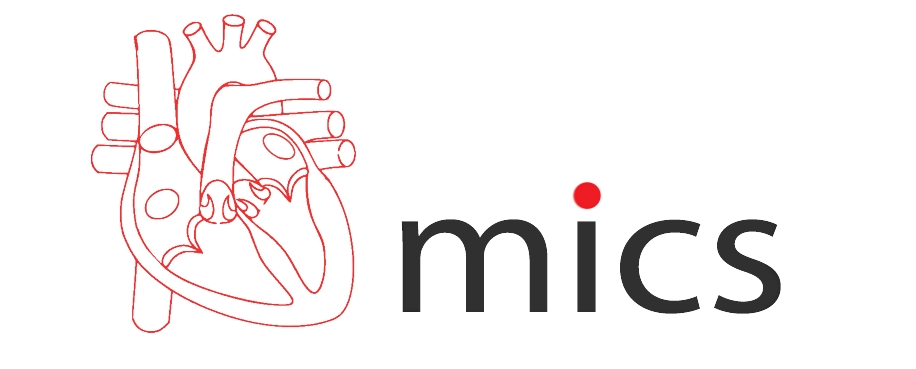When it comes to heart bypass surgery, there’s no shortage of information—and misinformation. This complex procedure can seem daunting, especially with so many myths floating around. If you’re a heart patient, a medical student, or simply curious, understanding the truth behind these myths can help you make informed decisions about your health.
Myth 1 – Heart Bypass Surgery is Only for Older Adults
Fact: While it’s true that heart bypass surgery is more common among older adults, younger patients sometimes need it too. Heart disease doesn’t discriminate by age. Factors like genetics, lifestyle, and underlying health conditions can necessitate bypass surgery at a younger age. Each patient’s situation is unique, and doctors tailor their recommendations based on individual health needs, not just age.
Myth 2 – Bypass surgery is only performed when all other treatments have failed.
Fact: Bypass surgery can be a proactive treatment option. It’s often recommended before heart disease progresses too far. Early intervention can improve outcomes and quality of life. Doctors consider various factors, including the severity of blockages and the overall health of the heart, to determine if surgery is the best course of action.
Myth 3 – Bypass Surgery is Too Risky and Dangerous
Fact: Modern medical advancements have significantly reduced the risks associated with heart bypass surgery. Procedures are now safer and more effective than ever before. While any surgery has risks, the success rates are quite high, and many patients experience substantial improvements in their health and quality of life.
Myth 4 – You Can’t Lead a Normal Life after Heart Bypass Surgery
Fact: Many people return to their normal activities and even improve their overall lifestyle after surgery. Recovery involves some adjustments, like incorporating a healthier diet and regular exercise, but most patients are able to lead fulfilling lives. The key is to follow your doctor’s advice and make the necessary lifestyle changes to support heart health.
Myth 5 – Heart Bypass Surgery Guarantees a Cure for Heart Disease
Fact: While bypass surgery can significantly improve heart function and relieve symptoms, it’s not a cure for heart disease. Ongoing management, including medication and lifestyle changes, is crucial. Heart disease is a chronic condition, and long-term care is necessary to maintain heart health and prevent future issues.
Myth 6 – You Must Avoid All Physical Activity after Surgery
Fact: Gentle, supervised physical activity is encouraged as part of the recovery process. Exercise helps strengthen the heart and improve overall health. Your doctor will recommend a tailored rehabilitation program to help you gradually resume physical activities. Staying active is important for long-term heart health, but it’s crucial to follow your doctor’s guidance.
Myth 7 – Heart Bypass Surgery is Extremely Painful
Fact: Pain management has come a long way, and many patients report manageable discomfort rather than severe pain. Doctors use a variety of techniques to keep pain under control, including medications and minimally invasive approaches. Understanding what to expect and discussing pain management with your healthcare team can help alleviate concerns.
Myth 8 – You Can’t Have a Heart Bypass if You Have Other Health Conditions
Fact: Many people with other health conditions can still undergo heart bypass surgery. Conditions such as diabetes, high blood pressure, and kidney disease can complicate surgery but do not automatically disqualify you. Doctors will evaluate your overall health and make adjustments to the treatment plan to manage these conditions and optimize outcomes.
Myth 9 – Heart Bypass Surgery Will Guarantee No Further Heart Problems
Fact: While heart bypass surgery can improve blood flow and alleviate symptoms, it does not guarantee that you won’t experience further heart problems. Ongoing management, including lifestyle changes and medication, is essential for maintaining heart health and preventing future issues.
Myth 10 – You’ll have to give up all your favourite foods after surgery
Fact: You don’t have to give up all your favourite foods, but adopting a heart-healthy diet is important. This means focusing on foods low in saturated fats, cholesterol, and sodium, while incorporating more fruits, vegetables, and whole grains. You can still enjoy your favourite foods in moderation and as part of a balanced diet.
Ready to Experience the Future of Heart Surgery?
At MICS Heart, we specialize in minimally invasive cardiac surgery and robotic heart surgery, offering unparalleled safety and outstanding outcomes. With over 15 years of experience and more than 3,000 successful procedures, our cutting-edge techniques ensure you receive the best care with the least amount of discomfort.
Why Choose MICS Heart?
-
High Precision: Robotic-assisted surgeries for optimal results.
-
Exceptional Care: Personalized treatment from consultation through recovery.
Don’t let heart surgery be a source of fear. Embrace a smoother, faster recovery with our advanced minimally invasive procedures.
Conclusion
Navigating the world of heart bypass surgery can be overwhelming, but separating fact from fiction is a crucial step. By understanding the reality behind these common myths, you can approach the procedure with greater confidence and clarity. Remember, open communication with your healthcare team is key to making informed decisions and achieving the best possible outcomes.

